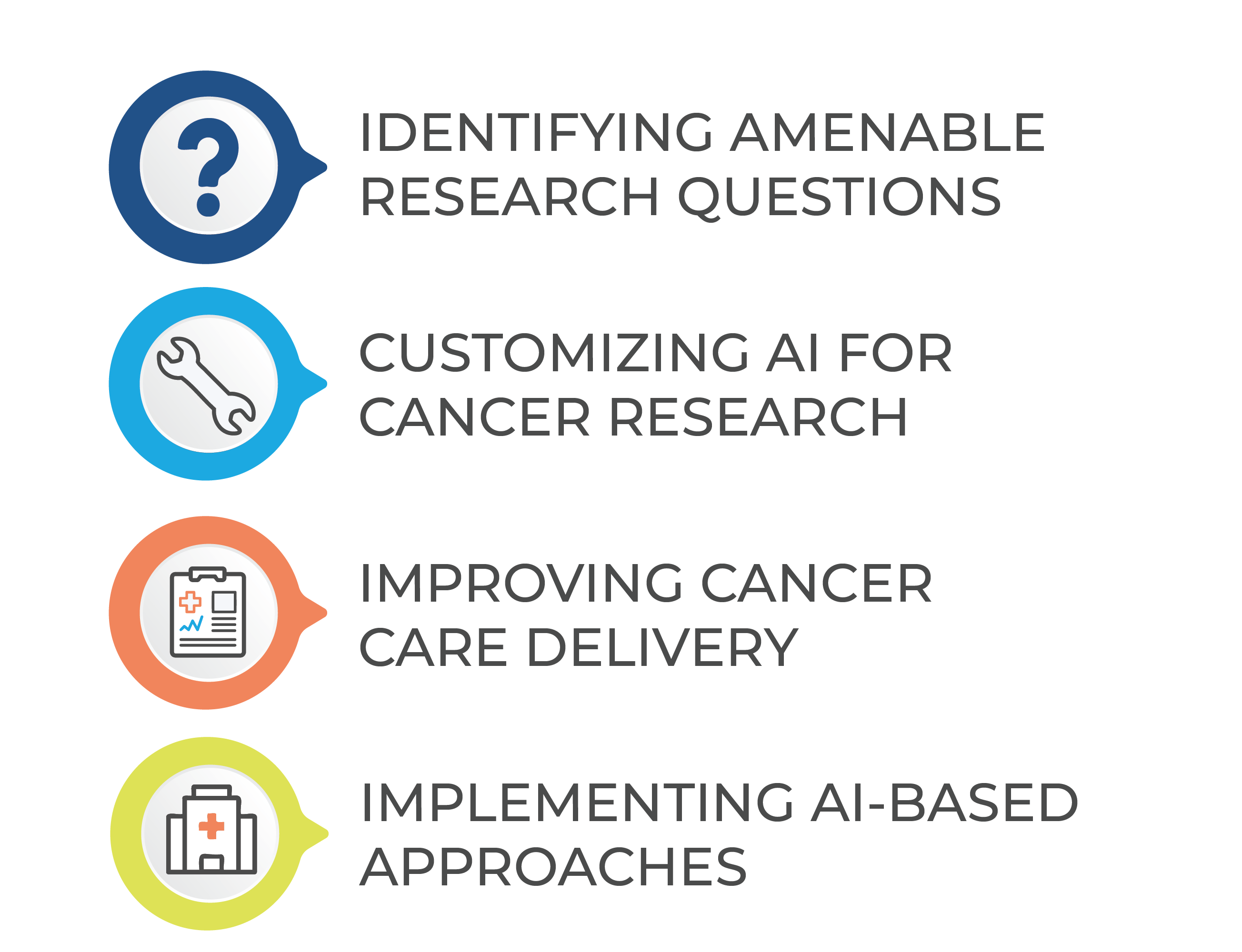News
Read NCI's Four Priority Areas for Artificial Intelligence
Artificial Intelligence (AI) and Machine Learning (ML) are proving particularly relevant in the cancer research realm. NCI Director Dr. Ned Sharpless and CBIIT Director Dr. Tony Kerlavage recently published an article, "The Potential of AI in Cancer Care and Research," which takes stock of current uses of AI/ML, NCI’s current activities in AI, and outlines four priority areas NCI hopes to explore in greater depth in the future. The article is part of a special issue of Biochimica et Biophysica Acta (BBA)-Reviews that explores recent advances in AI/ML technology.
Dr. Sharpless and Dr. Kerlavage highlight recent successes in AI/ML, such as the interpretation of radiological test results. They also show how this technology has the potential to revolutionize care in the future, allowing us to comb through terabytes of data to glean results rapidly and accurately. Those results will help augment existing care, like confirming pathology results. AI/ML tools can help make high-quality care accessible to all patients, even those who live far from cancer specialists.
As noted by the authors, "NCI is enthusiastic about the potential for AI/ML to transform and augment how we study, think about, diagnose, and treat cancer. Alongside our federal and industry partners, we are committed to leading the development of AI/ML for cancer care and research."

